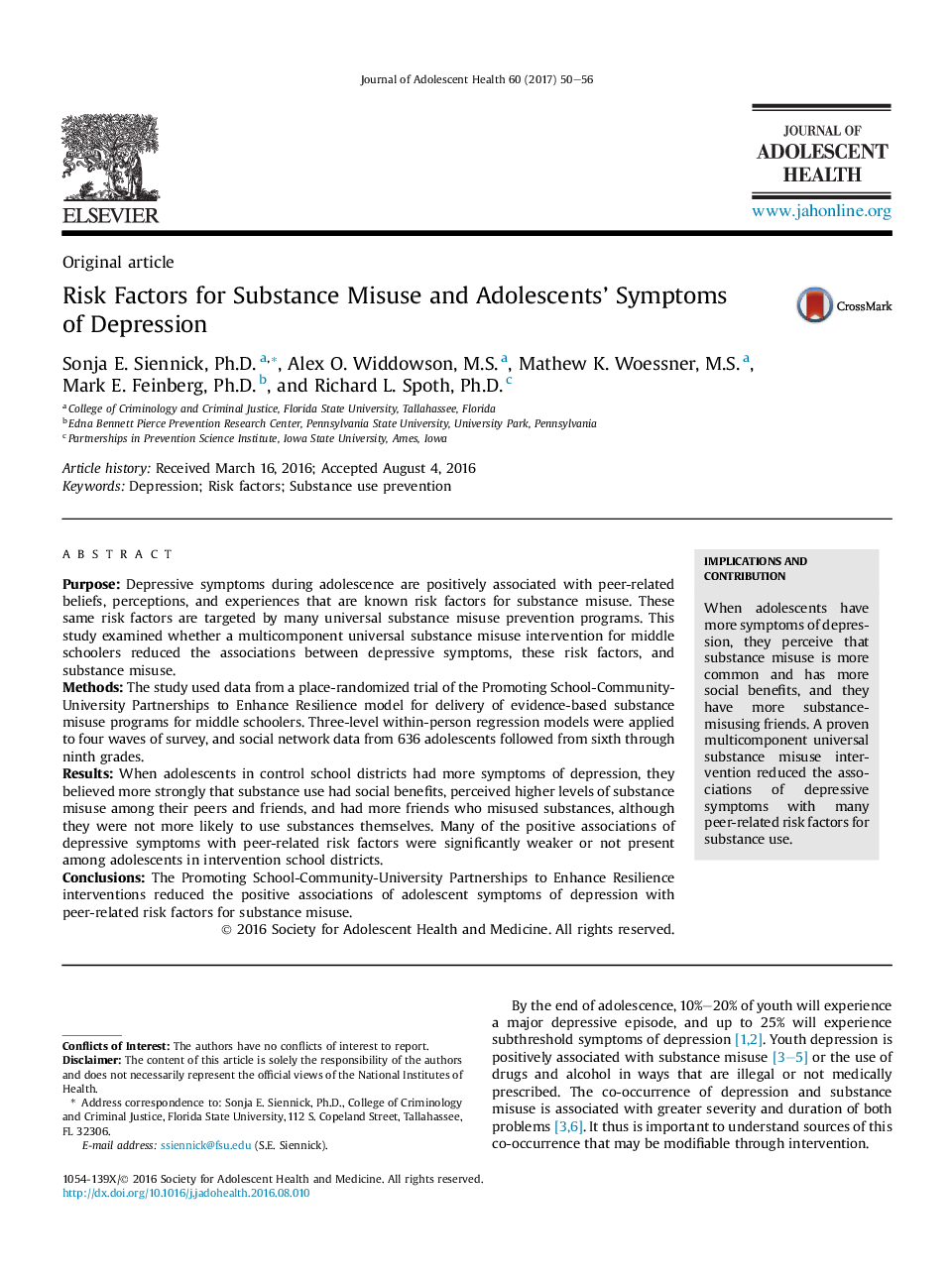| Article ID | Journal | Published Year | Pages | File Type |
|---|---|---|---|---|
| 5121369 | Journal of Adolescent Health | 2017 | 7 Pages |
PurposeDepressive symptoms during adolescence are positively associated with peer-related beliefs, perceptions, and experiences that are known risk factors for substance misuse. These same risk factors are targeted by many universal substance misuse prevention programs. This study examined whether a multicomponent universal substance misuse intervention for middle schoolers reduced the associations between depressive symptoms, these risk factors, and substance misuse.MethodsThe study used data from a place-randomized trial of the Promoting School-Community-University Partnerships to Enhance Resilience model for delivery of evidence-based substance misuse programs for middle schoolers. Three-level within-person regression models were applied to four waves of survey, and social network data from 636 adolescents followed from sixth through ninth grades.ResultsWhen adolescents in control school districts had more symptoms of depression, they believed more strongly that substance use had social benefits, perceived higher levels of substance misuse among their peers and friends, and had more friends who misused substances, although they were not more likely to use substances themselves. Many of the positive associations of depressive symptoms with peer-related risk factors were significantly weaker or not present among adolescents in intervention school districts.ConclusionsThe Promoting School-Community-University Partnerships to Enhance Resilience interventions reduced the positive associations of adolescent symptoms of depression with peer-related risk factors for substance misuse.
